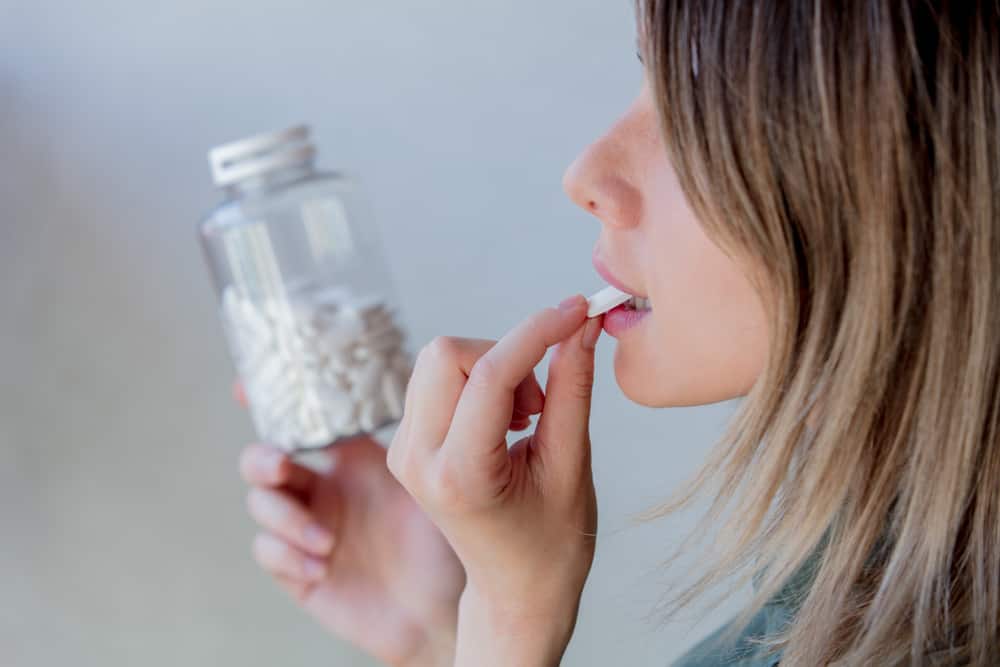Adderall Abuse & Dependence
Long-Term Consequences of Adderall Abuse
Adderall is a frequently prescribed and commonly abused medication, which is often used to treat attention-deficit hyperactivity disorder in adolescents and young adults. This specific medication is widely abused by college students and other individuals looking to stay awake for long hours and increase alertness and productivity. Unfortunately, because Adderall is initially prescribed by licensed medical professionals, many people mistakenly believe it is safe to use even when it was not prescribed to them directly. In reality, using any prescription drug other than as intended can lead to serious and long-term effects. If you or someone you love has been misusing Adderall for any length of time, Princeton Detox & Recovery Center is available to help. We offer professional medical detox services to those in need, helping our clients undergo a safe and comfortable prescription stimulant withdrawal before transitioning into the next appropriate level of treatment. Withdrawal is only one of the long-term effects of Adderall misuse and dependence. Continue reading or contact us to learn more about the risks involved in long-term Adderall misuse and to learn more about our effective and highly individualized program of addiction recovery.
Adderall Addiction Facts & Statistics
Adderall is made from a combination of two chemical substances — dextroamphetamine and amphetamine. Like the majority of other prescription stimulants, Adderall most commonly comes in a tablet form and is taken orally. When taken as prescribed, Adderall can successfully combat the symptoms associated with ADHD and help people remain focused and alert throughout the day. However, Adderall happens to be one of the most commonly misused prescription drugs in the country. What constitutes prescription stimulant misuse? If you use Adderall in any of the following ways you are technically engaging in prescription drug misuse:
- Taking a higher dose of Adderall than was prescribed by your doctor.
- Taking Adderall more frequently than intended.
- Taking Adderall that was not prescribed to you.
- Purchasing Adderall from a friend or acquaintance.
- Taking Adderall for its effects — to get high.
According to John Hopkins University, Adderall misuse is on the rise among young adults between the ages of 18 and 25. In most cases the prescription stimulant is obtained from a friend or a family member without the recommendation of a medical professional. According to the recent study, “John Hopkins researchers found that 60 percent of non-medical Adderall use for ages 12 and up was happening among 18- to 25-year-olds. In the study’s focus period from 2006 to 2011, researchers saw that non-prescribed use of Adderall by young adults went up by 67 percent and associated emergency room visits rose by 156 percent. Over the same period, regular treatment visits involving Adderall remained unchanged for this age group. The problem appears to be less severe with younger adolescents. For this age group, the study saw that treatment visits for Adderall declined during the six-year period, non-medical use remained stable, and emergency room visits declined by 54 percent.”
There are numerous long-term consequences of prescription stimulant misuse. If you or someone you love has been using Adderall or any other prescription medication other than as prescribed, reaching out for professional help is a good idea.
How Does Adderall Addiction Develop?
To better understand Adderall addiction and how it typically develops, it’s best to first understand what Adderall is and how it works. Primarily, this prescription medication is a stimulant drug belonging to the amphetamine class, containing four amphetamine salts in a proprietary ratio. This combination is used to provide the steadiest and longest effect possible for improved ADHD symptom control. Amphetamines all work in a similar way to each other, whether the concerned substance is Adderall, Dexedrine or even methamphetamine (also known as crystal meth). Each of these substances temporarily increases levels of chemicals known as neurotransmitters in the brain, including dopamine. Normally, the brain keeps dopamine stored up and only uses the reservoir as needed. With amphetamines present all the stored dopamine is released much faster, leading to an intense rush of pleasure and euphoria. This feeling can be highly addictive in and of itself.
Additionally, and as is the case with any chemical substance, the brain and the central nervous system adjust to the presence of Adderall over time and with repetitive use. A physical tolerance builds, meaning a higher dose of Adderall is required in order for the desired effects to be produced. At this point a person often begins increasing the dose on their own, without doctor approval. When they attempt to cut back on the amount being taken or quit entirely, the physical body goes into shock, and withdrawal symptoms begin to develop. Tolerance and withdrawal are two telltale signs of Adderall addiction.
Signs & Symptoms of Adderall Addiction
How can you tell whether or not addiction treatment has become necessary? It can be difficult to diagnose yourself, considering substance use disorders and denial often go hand-in-hand. The Diagnostic and Statistical Manual of Mental Disorders, Fifth Edition (DSM-V) lays out a specific set of diagnostic criteria you can utilize to help you determine whether or not treatment has become necessary.

Ask yourself the following questions:
- Do I often use more Adderall than intended for longer periods of time than intended?
- Have I attempted to cut back on my Adderall use but found myself unable to do so?
- Has my Adderall use started to result in negative consequences in my day-to-day life?
- Have my interpersonal relationships been impacted by my Adderall use?
- Have I been neglecting hobbies and activities I previously enjoyed?
- Has my performance at work or school been suffering as a direct result of my Adderall use?
- Do I continue to use Adderall despite related consequences?
- Do I spend a great deal of time obtaining, using and recovering from the effects of Adderall?
- Have I been engaging in a greater amount of risk-taking activities?
- Have I developed a physical tolerance to Adderall, meaning a higher dose is now required in order for the desired effects to be produced?
- Do I experience withdrawal symptoms when I attempt to quit Adderall or cut back on the amount I’m taking?
If you answered “yes” to two or more of the questions listed above, there is a good chance treatment has become necessary. Contact us today to learn more about Princeton Detox & Recovery Center and our program of medical stimulant detox.
Ready To Begin Your Detox?
Don’t let addiction control your life.
Call us today and let’s get you started on the path to a better you.
Long-Term Consequences of Adderall Addiction
There are short and long-term consequences associated with Adderall use.
The short-term effects of Adderall abuse include:
- Increased blood pressure.
- Increased heart rate.
- Increased energy levels and hyperactivity.
- Anxiety and panic attacks.
- Racing and intrusive thoughts.
- A spike in body temperature.
- Appetite loss.
- Mood changes, often marked by agitation and irritability.
- Restlessness and an inability to sit still.
- Persistent headaches.
- Dry mouth.
When it comes to long-term Adderall use, related consequences can be severe.
The most common long-term effects of Adderall misuse include:
- Persistent sleep issues, including insomnia and exhaustion.
- Significant weight loss due to harshly reduced appetite.
- Lasting changes to mood, which might include irritability, aggression and agitation, recurring anxiety or depression.
- Newly developing psychiatric issues.
- Heart disease and increased risk of heart attack.
- High blood pressure.
- The development of a serious and potentially life-threatening stimulant use disorder.
According to the National Institute on Drug Abuse, “Repeated misuse of prescription stimulants, even within a short period, can cause psychosis, anger, or paranoia. If the drug is injected, it is important to note that sharing drug injection equipment and having impaired judgment from drug misuse can increase the risk of contracting infectious diseases such as HIV and hepatitis. An SUD develops when continued use of the drug causes issues, such as health problems and failure to meet responsibilities at work, school, or home.”
It is important to remember that you cannot seek help for a prescription stimulant use disorder too early on or too late. Nipping problem use in the bud before it develops into an addiction is always a good idea, and even those with severe cases of Adderall addiction can recover with the right treatment program in place. At Princeton Detox & Recovery Center we have developed a program of medically monitored stimulant detox geared towards helping clients undergo a comfortable withdrawal while preparing them for the remainder of their personal recovery journeys. To learn more, contact us today.
Symptoms of Adderall Withdrawal
Many people mistakenly believe they can undergo Adderall detox safely in an at-home setting. However, because the physical and psychological symptoms of Adderall withdrawal can be severe when left untreated, it is always recommended a person completes a short stay in an inpatient detox center — regardless of the severity of the substance use disorder.

The most common symptoms of Adderall withdrawal include:
- Significant changes to mood, including severe anxiety, panic attacks, depressed mood and suicidal ideation.
- Having a difficult time falling asleep and staying asleep.
- Restlessness and irritability.
- Nausea and vomiting.
- Severe stomach cramping.
- Tiredness and fatigue.
- Temporary weight gain due to a sudden increase in appetite.
What Treatment Options Are Available for Adderall Addiction Recovery?
When it comes to Adderall addiction recovery, medical detox often comes as a recommended first step. While medical detox is an important stage of the treatment process it is rarely effective as a standalone treatment option. Detox is only beneficial when it is immediately followed up by a higher level of care, such as residential inpatient treatment, partial hospitalization or intensive outpatient treatment. NIDA states, “Behavioral therapies, including cognitive-behavioral therapy and contingency management (motivational incentives), can be effective in helping to treat people with prescription stimulant addiction. Cognitive-behavioral therapy helps modify the client’s drug-use expectations and behaviors, and it can effectively manage triggers and stress.” If you or someone you love has been struggling with a stimulant use disorder of any type or severity, the following stages of addiction treatment come recommended.
- Medical Detox – In medical detox a person undergoes a safe and pain-free Adderall withdrawal under the close supervision of a team of licensed medical professionals. Physical and psychological withdrawal symptoms are treated as soon as they develop.
- Residential Inpatient Treatment – In residential inpatient treatment a person resides in a treatment center for a prolonged period of time, typically between 30 and 90 days. While in treatment the person has access to intensive psychotherapy, holistic treatment options and a range of additional evidence-based approaches.
- Partial Hospitalization (PHP) – In PHP a person has slightly more flexibility than they would have in a residential rehab, seeing as they are able to return home in the evenings, after a full day of therapy.
- Intensive Outpatient Treatment (IOP) – IOP is one step down from PHP. In IOP a person undergoes addiction treatment for between 3 and 4 days a week for several hours each day. They are able to fulfill personal obligations outside of treatment.
- Sober Living and Aftercare – Many people decide to move into a sober living house straight after residential treatment, as they begin to navigate their new lives of sobriety. While in treatment a personalized aftercare plan is developed, which generally includes a continuation of therapy and involvement in a recovery-based support group.
Contact Us Today to Learn About Our Simple Admissions Process
Prescription stimulant addiction can be particularly difficult to overcome without professional help. The good news is that help is always available. The moment you make the decision to reach out you will be put in touch with one of our experienced Treatment Advisors who will walk you through our simple and straightforward admissions process. We begin by conducting a brief pre-assessment which consists of several questions geared towards helping our clinical team determine which level of care and which detox methods will prove most beneficial to you or your loved one. We then offer a free, no obligation health insurance benefit check, and help you work through additional coverage options if you are underinsured or entirely uninsured. Finally we arrange local transportation to our medical detox center in New Jersey. Contact us today to learn more about the effective treatment options provided by Princeton Detox & Recovery Network or to get started with our simple admissions process.

Reviewed for accuracy by:
Amanda Hilzer M.Ed, CAADC, IADAC, ICCS, LCADC, CCS
Amanda graduated from Lehigh University with both an undergraduate degree in Psychology and a Master’s of Education degree in Counseling Psychology and has worked in the field of substance use disorder treatment and mental health treatment as a counselor and as a clinical manager for over 14 years.

































